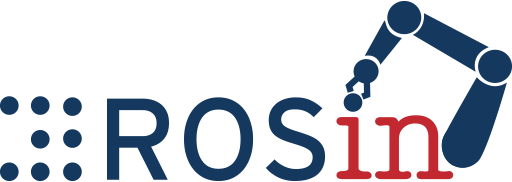MoveIt's first commit was October 2011. MoveIt was initially developed at Willow Garage by Sachin Chitta, Ioan Sucan, Gil E. Jones, Acorn Pooley, Suat Gedikli, and Dave Hershberger and we thank Willow Garage for its support of the MoveIt project. We would also like to thank SRI International for its support of the MoveIt project between October 2013 and June 2015. Since then, PickNik has been leading the support of the MoveIt project.
We gratefully acknowledge the early contributions of the following people to MoveIt and associated packages that MoveIt uses:
-
Lydia Kavraki, Mark Moll, and associated members of the Kavraki Lab (Rice University) for developing OMPL - a suite of randomized planners that MoveIt uses extensively.
-
Dinesh Manocha and Jia Pan of UNC Chapel Hill for developing FCL - a package of collision checking algorithm used extensively by MoveIt
-
Maxim Likhachev (CMU), Ben Cohen (Penn) and Mike Phillips (CMU) for developing SBPL, a search-based planning library integrated with MoveIt
-
Armin Hornung, Kai Wurm, Maren Bennewitz, Cyril Stachniss, and Wolfram Burgard for developing Octomap - software for 3D occupancy mapping used by MoveIt
-
Mrinal Kalakrishnan, Peter Pastor and Stefan Schaal at USC for developing STOMP and CHOMP
-
Dave Coleman for developing the MoveIt Setup Assistant, OMPL algorithms, and taking leadership of the MoveIt project since 2016.
-
Michael Ferguson for the simple controller manager plugin, inspiring World MoveIt Day, and helping revamp the MoveIt project in 2016.
-
Edward Gil Jones, Matei Ciocarlie, Kaijen Hsiao, Adam Leeper, and Ken Anderson for their seminal contributions of Arm Navigation and Grasping Pipeline components that MoveIt evolved from.
-
Contributions of Willow Garage interns who have worked on MoveIt, Arm Navigation, and associated components
-
Members of the ROS and PR2 communities who have used, provided feedback and provided contributions to MoveIt
-
ROS-Industrial consortium led by the Southwest Research Institute and Fraunhofer IPA for applying MoveIt to industrial robots.
-
Open Robotics for playing an advisory role, maintaining ROS, and providing the infrastructure for releasing packages



 PickNik was founded with the mission of growing the MoveIt project through community building and contract consulting.
PickNik was founded with the mission of growing the MoveIt project through community building and contract consulting.
 The port to ROS 2 is supported by ROSIN - ROS-Industrial Quality-Assured Robot Software Components. More information:
The port to ROS 2 is supported by ROSIN - ROS-Industrial Quality-Assured Robot Software Components. More information: 